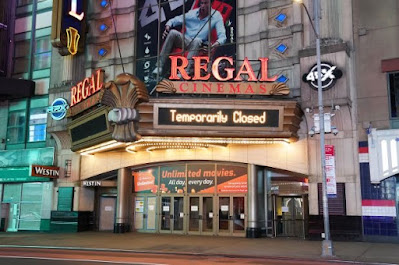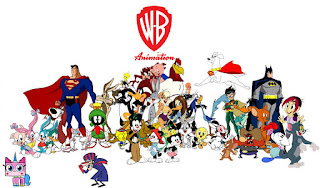Joker director Todd Phillips, previously known for his raunchy R-rated comedies like
The Hangover trilogy, has said one reason he made
Joker, a drama, was because it was difficult to make irreverent comedies, since
audiences are more easily offended these days.
Is it true? The numbers don’t lie: when the tween comedy
Good Boys opened at number one this summer, it was
the first R comedy to do that in over three years. Once again, PG-13 appears to be the safer choice for Hollywood studios now; in a recent interview, Eddie Murphy, whose R-rated Rudy Ray Moore biopic
Dolemite is My Name is playing on Netflix,
confirmed as much. This
Variety piece from 2017 also theorized a change in the culture, but cited the immediacy of late-night television as a factor...
...which brings us back to Phillips’ theory. I know my tastes have evolved over time. I don’t seek out R comedies (Murphy’s movie notwithstanding), but I don’t think I ever did—unless Kevin Smith made them. Why don’t I go to R comedies as much anymore? If I’m being honest, I suppose I want a little more... sophistication. All those Lubitsch and Wilder and Sturges movies made an impression! Plus, a movie like
The Hangover works better if you go with friends, and practically none of my friends, who are over forty, like me, have any interest in them either.
Fear of being offended is not a factor for me (I laughed at the “porch monkey” jokes in
Clerks 2), yet I can’t deny “woke culture” is a palpable presence these days. Twitter users are ready and willing to pounce on anything that carries even a hint of being un-PC, and if they have led to a decline in irreverent comedies, that would be a shame and a waste. It may be with the best of intentions, but I don’t like the thought of pop culture settling into a safe middle ground where everything is sanitized. If I choose not to see a
Hangover-type movie, that should be
my choice—and I should be free to change my mind without fear of censure. At the same time, I hope I don’t have that fear-of-offense attitude myself, but if I do, I’m gonna work at changing it.
——————
 |
Lonergan (L), next to the Wyler sisters.
I don’t know who the moderator was. |
Last month, Virginia and I had the privilege of attending a New York Film Festival screening of one of my favorite classic films,
Dodsworth. It was a new restoration, screened at Lincoln Center’s Alice Tully Hall, and the daughters of director William Wyler, Catherine and Melanie, were in attendance for a Q&A, along with
Manchester by the Sea director Kenneth Lonergan.
This was the first time I had seen it with an audience, and once again, I found the experience of hearing other people laughing at moments I didn’t necessarily find funny jarring. I’ve seen other film bloggers talk about this when it comes to old movies, and now I understand this feeling better: you see a film made in a different era, you connect with it, and then you see it with a crowd and that connection changes because others don’t react to it the same way you do. I doubt the audience thought
Dodsworth was campy, and I don’t think they were being disrespectful; their reactions just rubbed me the wrong way. I don’t get like this when it comes to more recent movies, or if I do, the feeling’s not as acute. That’s the chance you take with an audience, but it’s okay.
Regardless, the restoration was beautiful. The Wyler sisters and Lonergan discussed casting, including William Wyler butting heads with Ruth Chatterton; Mary Astor’s great performance despite the scandalous divorce she was part of at the time; the overall acting; and the film in a historical context. Virginia loved the film, as I knew she would.
———————
I saw
Ad Astra again, this time with Ann, who wanted to see it. I think I understand the movie better the second time around. As I explained to Ann afterwards, the bigness of the movie, the Kubrick-meets-Malick aspect of the storytelling and filmmaking might have blinded me to the humanity at the heart of it all, but the second viewing made it easier to see the characters as people, and I appreciate it better. If you wanna talk about it further, spoilers are allowed in the comments to this post.
More on the other side.































